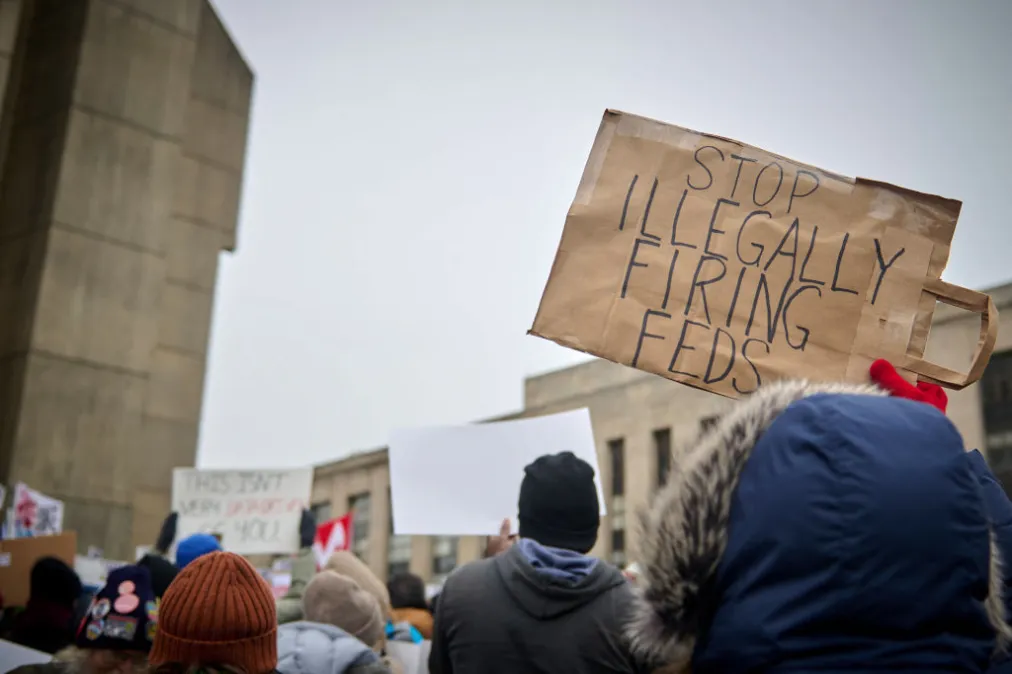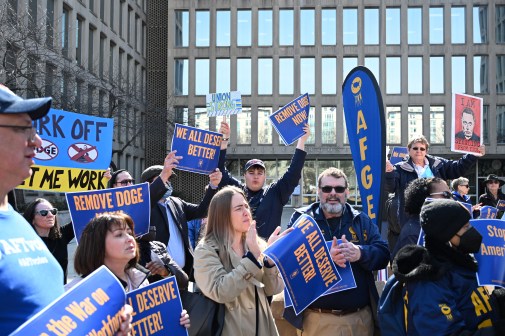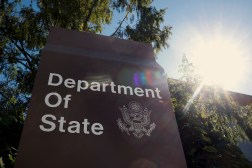Appeals court halts remaining district order that reinstated fired probationary workers

The Trump administration was handed another win in its pursuit to terminate thousands of probationary employees across the federal government — this time by the U.S. Court of Appeals for the Fourth Circuit.
Two of the judges on a three-judge panel of the court voted Wednesday to grant the government’s request to stay, or pause, an order by Judge James K. Bredar of the U.S. District Court for the District of Maryland that required 20 agencies to reinstate their fired probationary employees who lived in Washington, D.C. or one of the 19 states whose attorneys general brought the case.
That decision came one day after the Supreme Court stayed a separate district court ruling from Judge William Alsup of the Northern District of California, which had similarly ordered reinstatement of probationary workers to a smaller group of just six federal agencies. A majority of the justices, however, sided with the government on administrative grounds, finding that the nonprofit organizations who brought the case lacked standing.
The Fourth Circuit’s decision is impactful because it enables the Trump administration to again terminate thousands of reinstated workers. While the Supreme Court’s ruling was a blow for fired federal employees, it only impacted workers who weren’t covered under the District of Maryland order. But now, with that order gone, the path for the administration’s terminations is clear.
One other decision by the Merit Systems Protection Board, a quasi-judicial body within the government, also stayed the firings and ordered reinstatements of thousands of workers in the U.S. Department of Agriculture until April 18. The board, however, didn’t receive a request to extend that stay by April 3, the deadline to do so in the original order. Bloomberg Law was the first to report the news Wednesday and FedScoop confirmed with MSPB Executive Director William Spencer.
In a brief order, the Fourth Circuit said that it found the government was likely to succeed in its argument that the District of Maryland lacked jurisdiction over the claims brought by the states, and that the government isn’t likely to recover payments to the probationary workers it reinstated. It also cited the Supreme Court’s decision in the Northern District of California case.
That order was entered at the direction of Judge Allison Jones Rushing, with concurrence by Judge J. Harvey Wilkinson. Judge DeAndrea G. Benjamin dissented, saying she would have denied the government’s request and Bredar’s order granting the preliminary injunction “well-reasoned.”
Benjamin said the government failed to provide states with information about the probationary firings in violation of federal reduction in force statute, and the injury caused by the lack of that information “cannot be a ‘dead end,’ as the Government claims.”
Bredar’s initial decision last month offered widespread relief to federal workers anywhere in the country who were fired from 18 federal agencies. Documents submitted to the court by the covered government agencies revealed that they terminated a combined 25,000 probationary workers.
A preliminary injunction he issued April 1, however, added the Department of Defense and the Office of Personnel Management to the covered agencies, but limited the scope of the relief to fired employees who worked in one of the plaintiff states or in Washington, D.C. That order also prohibited the agencies from conducting reductions in force in the meantime.
News of the Fourth Circuit’s decision came amid a hearing over a request for additional injunctive relief in the Northern District of California case Wednesday. Alsup did not rule from the bench as he has in the past, but rather requested additional information from the parties.






